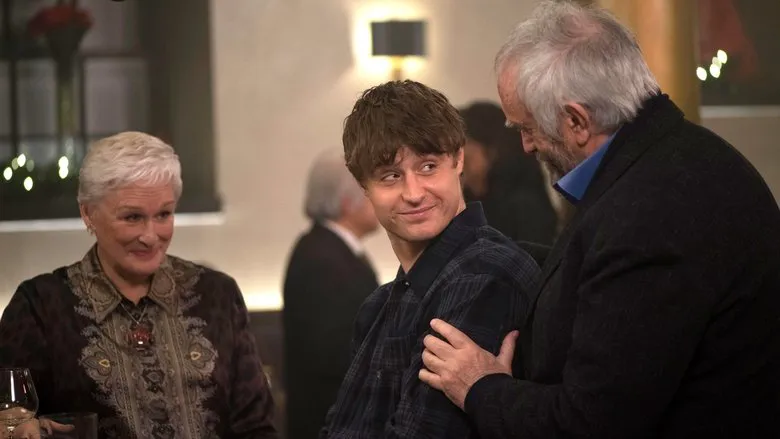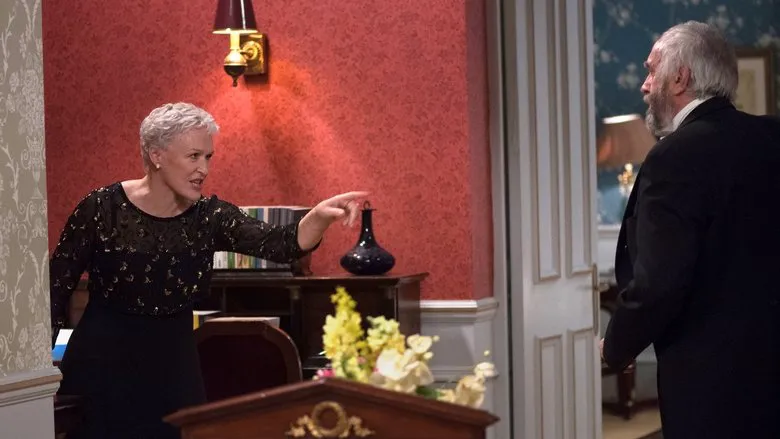The Wife: A Faded Drama of Sacrifice and Lost Glory
The Wife presents a poignant, albeit somewhat lackluster, narrative about a talented woman, Joan (Glenn Close), who sacrifices her own literary aspirations for the sake of her husband and family. Joan is a gifted writer, but her talent remains largely unrecognized. For nearly half her life, her husband Joe (Jonathan Pryce), a mediocre writer, receives all the accolades for her exceptional work. She edits his novels, and sometimes even writes them from scratch, while he attends to household chores and childcare. In their twilight years, Joe is awarded the Nobel Prize in Literature, prompting a trip to Stockholm. A resentful Joan accompanies him, struggling to resist the temptation to reveal the truth to biographer Nathaniel (Christian Slater), who suspects she is the true author behind Joe’s success.

The adage “Behind every great man, there’s a great woman” is fertile ground for cinematic adaptations. Following Tim Burton’s Big Eyes and the TV hit The Marvelous Mrs. Maisel, The Wife tackles similar themes, positioning itself as a potential Oscar contender. Coincidentally, another film with a similar premise, set in the 19th century, titled Colette, was released around the same time. While The Wife seems to join a series of films exploring gender inequality in creativity and recognition, it barely scratches the surface of the issue. The film relies on a grandstanding monologue in an unnecessary flashback, suggesting that women in the mid-20th century were unable to achieve success in literature, conveniently ignoring the legacies of Virginia Woolf and Gertrude Stein, not to mention the then-living Iris Murdoch.

A Script Lacking Depth
The screenplay feels like the work of a novice playwright trying to break into cinema. A promising start, with the unexpected Nobel Prize announcement, quickly devolves into a generic family drama: a dysfunctional family with familiar archetypes – the philandering husband, the stoic wife, and the talentless son yearning for parental approval. The son’s storyline fades into the background as the main characters engage in a melodramatic and forced rendition of Andrew Haigh’s 45 Years, revolving around long-held secrets. The film is filled with clichés: shouting matches, book-throwing, slow-motion sequences during dramatic moments, and even a death scene following a melodramatic line seemingly lifted from a soap opera parody. The film reaches peak absurdity when Joan criticizes her husband’s early novel for its “pompous dialogue,” only to declare, “Just because I didn’t love your novel doesn’t mean I don’t love you!”
Saving Graces: Performances by Close and Pryce
The film’s saving grace lies in the performances of Jonathan Pryce and Glenn Close. Pryce is competent but delivers a somewhat automatic performance, failing to infuse the script with the psychological depth that Close brings to her role. Close masterfully conveys her character’s personal tragedy, hidden beneath her devotion to her family, through subtle gestures and facial expressions. However, the flashbacks, intended to add cinematic flair to the theatrical script, hinder her performance for the first two-thirds of the film. These flashbacks explicitly state what Close is already conveying through her acting. Fortunately, the final scenes grant her complete freedom, leading to the film’s Russian poster proclaiming “100% Oscar for Close” and generating real Oscar buzz for the actress. It would be a shame if Close were to win an award for a role that isn’t her best, but a career-achievement Oscar is still an Oscar, even if its specific justification remains unclear.